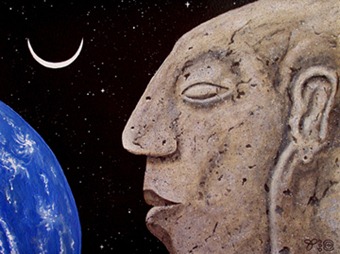The last New Year's Day in human history has come. You may not believe it, but millions do. They are convinced that ancient Maya priests calculated December 21, 2012, as the end of the world. The only problem is, the ancient Maya predicted no such thing.
In its heyday, circa AD250 to 900, the Mayan civilisation produced a dazzling legacy of literature and learning, art and architecture. But they weren't preoccupied with apocalypse.
The Maya perceived time as a set of infinite cycles, not a clock ticking towards doomsday. One of these cycles, known by scholars as the Maya Long Count, consists of more than 5000 years.
In our calendrical system, it began in August 3114BC and is due to end on December 21, 2012 - or, in Maya numerology, 13.0.0.0.0.
But there is nothing to suggest the Maya believed this date would be the world's last.
One text that records the date 13.0.0.0.0, a carved stone plaque from the Mexican site of Tortuguero, was ambiguously read by Maya scholars in 1996 as possibly predicting an ominous event - the ''descent'' of a deity associated with the underworld.
The scholars posted their interpretation online and that reading spread rapidly across the internet in the years that followed, promoted as evidence of a specific Mayan prophecy.
The consensus today is that the text refers to a future commemoration of that date, when the local ruler will impersonate or represent that deity. It is not a doomsday prophecy but a bold assertion that the seventh-century building once marked by the plaque would still stand in 2012.
If the evidence for Mayan doomsday predictions is so flimsy, why are so many people willing to believe it is true?
All societies are drawn to knowledge that seems time- worn, mysterious, coded - and to the magic of its decoding.
Another explanation lies deep within our own Western traditions, which include teachings about the end of the world. In stark contrast to the Maya, mediaeval Europeans generated a vast body of literature and artwork predicting and describing the world's end. Nobody questioned that it would come; the issue was how and when.
For more interesting topics related to archaeology, visit archaeology excavations.



No comments:
Post a Comment